English Language Centre (ELC) – Professional Development
Pharos University in Alexandria (PUA) is keen to provide continuous professional development training for the community’s English language teachers. Every month, PUA English Language Centre invites language teachers from around Egypt to attend training workshops (to follow up on our next training workshops, click here). Cambridge tutors and PUA CELTA certified teachers work together hand in hand to deliver sessions that focus on practical classroom ideas. Trainers and attendees look closely at a number of student-centred techniques.
Also, Pharos University in Alexandria English Language Centre staff members are always keen to take part in the professional development events. They represent the university whenever they present locally or internationally. Also, the university management always supports its staff and is proud of them.
NileTESOL 2022 26th Annual Conference
Noha Hilmy
Noha is a CELTA certified English teacher, assessment specialist, business course coordinator, and a certified teacher trainer in Pharos University. She has been working in the education field in Egypt and overseas as well with different age groups within different institutions. She is also a certified National Geographic educator and a big advocate of outdoor classrooms, PBL, CT skills and the importance of raising cultural awareness inside the ESL classrooms.
Noha presented at NileTESOL 26th annual conference on project based learning:
Noha started her talk by focusing on the theoretical part first highlighting some famous definitions that explain this approach like the definition of Buck Institute for Education, 2018 that describes it as a ‘teaching method in which students gain knowledge and skills by working for an extended period of time to investigate and respond to an authentic, engaging, and complex question, problem, or challenge’
Then she moved to the practical part presenting a video of a teacher summarizing her experience in applying this approach with her students using the National Geographic learning framework which is considered one of the best frameworks that adopt such an approach.
Simply, National Geographic Learning follows three phases in applying such an approach.
Phase One: There are three elements that need to be covered in tackling any topic which are: the Natural World, the Human World, and the Connection Between the Two.
Phase Two: is about defining the scales and perspectives the teacher is going to use to explore any topic. According to National Geographic, we have 3 scales (local, regional, global) and 7 perspectives (spatial, cultural, historical, political, economic, geological, and ecological). The teacher needs to choose one or more perspectives and scale.
Phase Three: The teacher reviews the National Geographic ready-made framework to choose what knowledge, skills, and attitude best suit her students.
The teacher then starts to plan her lesson in regard to the above points.
She also presented another example of an online lesson that can be achieved within the 45 min usual lesson time span to prove to the teachers that it’s not something difficult to apply within their regular lessons. She also viewed the two lesson plans of the two teachers and reviewed how they aligned the three phases to their lesson plans.
Then she drew a comparison between projects and project-based learning.
| Projects | Project Based Learning |
| Can be done alone | Requires collaboration and teacher’s guidance. |
| About the product | About the process |
| Teacher-directed | Student-directed |
| All projects have the same goal | Students make choices that determine the outcome |
| Products are submitted to the teacher. | Products are submitted to an authentic audience. |
| Lack real- world relevance | Based on real world experiences or problems |
| Occur after the “real” learning | Real learning occurs during the process. |
Noha directed teachers to the National Geographic Learning website for heaps of resources and professional development opportunities. At the end of the session, attendees have some questions which answers could be summarized in the following points:
Any teacher of any subject can apply such an approach, not only language teachers.
All subjects could be integrated through this approach.
Teachers can use their usual lesson plans to prepare an activity or a whole semester project based on project-based learning. What they need to do is to align the National Geographic standards to it.
The special thing about PBL is that it takes away the control from the teacher as an authoritarian figure and starts to give it to students. The teacher role here is of a guide only. Teachers here end up discovering and exploring with their students the findings they find along the way till they produce a product to the public audience at the end of the journey.
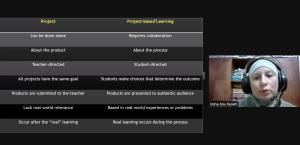
Marina Samir
Marina is a graduate of the Faculty of Education- English Department, and is a CELTA holder. Marina has experience teaching different age groups in different contexts. Currently, she is an English teacher and an academic Coordinator at Pharos University in Alexandria
Marina presented at NileTESOL 26th annual conference on approaches of ESL writing
Throughout the past years, an increasing interest in ESL studies was shown. Many handbooks and research were published, focusing generally on ESL education and specifically on sub-areas related to the field. One of these sub-areas that caught the attention of many scholars is ESL writing. Writing has always been a challenge for both teachers and students. That encouraged me to dig deeper into the topic and share my findings with the ELT community at the NileTESOL annual conference 2022 that took place in January.
During the presentation, Marina focused mainly on two approaches to writing, the product and the process approaches, highlighting the difference between them, their advantages and disadvantages, and their usefulness according to the teaching context. Around 70 people attended the session and they were interacting at every stage of the presentation. Interaction took place through Zoom chat box and other interactive online tools. The presentation ended with a final fruitful discussion about both approaches. The discussion was mainly concerned with the interaction patterns and inclusiveness of both approaches. The presentation and the discussions aroused many questions, most of which were related to the application of the two approaches in different contexts.
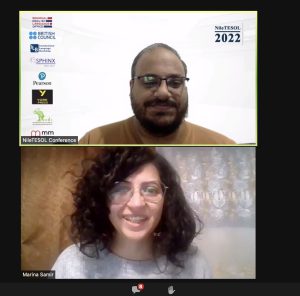
NileTESOL 2020 Annual Conference
Noha Hilmy
Noha’s season was a 90 minutes workshop titled:; Raising Cultural Awareness Using Critical Thinking Skills in the ESL Classroom
The first part of the session discusses the importance of raising the awareness of the target culture of the target language, and parallel to this raising the awareness of students’ own culture in addition to their awareness of themselves as cultural beings.
Noha offered my audience several activities that we did together in the workshop like the identity wheel, and the Iceberg analogy, plus modeling a whole active listening lesson that targets to raise cultural awareness using questions that urge students to use their critical thinking skills to answer. In the second part of the workshop, Noha stressed more on the importance of critical thinking skills as one of the top skills on the list of the 21 st century skills. Noha linked it to Bloom’s Taxonomy dividing them to HOTs and LOTS and applying the theoretical part by offering my audience a big variety of activities they can use when teaching language inside the classroom. At the end, Noha provided them with references to get back to if they want to dig more in the subject.
Audience in this session were teachers from different parts of Egypt: Cairo, Giza, El- Fayoum, etc. Teachers teaching different levels and age groups starting from upper junior to adults were welcome to attend. She even had kindergarten teachers who were really interested in the topic.
The interaction was really great inside the workshop. The attendees had the chance to work individually, in pair work, and also group work. They walked out happy with something solid in their hands to use and apply.
The experience of participating in a conference, sharing the knowledge and experience that I have, getting to know new people from all over Egypt and the world, learning from others, getting to know the updated methodologies and teaching techniques, all this and many more, that was amazing to go through.
Many thanks to all my management and all the people in Pharos University who
did their best to make this happen. Many thanks to the organizers in the AUC
who were really cooperative and helpful and supportive. Indeed it was a WOW
experience that she would love to go for again, and wish to see more participation from my PUA ELC colleagues as presenters in the coming years.

Annual Language Convention of the Catalonian Association of English Language Teachers, 2020
Andrew Wagdy
Andrew is an assessment specialist at the ELC and holds a Professional Diploma and a Special Diploma in TEFL from Alexandria University. He is a Cambridge certified speaking examiner and interlocutor and he is currently working on his MA in language assessment at Alexandria University.
Andrew presented in Barcelona, Spain during the Annual Language Convention of the Catalonian Association of English Language Teachers on Item Analysis and its role in improving language tests. The conference took place between 30th Jan and 1st February 2020 at the Pompeu Fabra University where he spoke during the symposium: “Research-based tools for effective assessment.” Andrew offered the audience, who were all English Language Teachers and Assessment Specialists, useful tools on how to ensure their test items are not too easy or too difficult for their students. He also demonstrated how item discrimination could help in showing differences between students’ test performance. During the session, Andrew provided the attendees with some hand-on experience on the statistical methods used to calculate item facility and item discrimination and they all walked out with use assessment tools which they said would help in improving the quality of their tests.
 |
 |
 |
 |
Ayten Adel
Ayten went to Cyprus,Turkey to present a research paper about visual literacy in December 2019. She attended a conference and presented her research paper at Cyprus International University in north Nicosia. The Dean of the faculty of Education at CIU gave Ayten a certificate and a medal as a token of appreciation
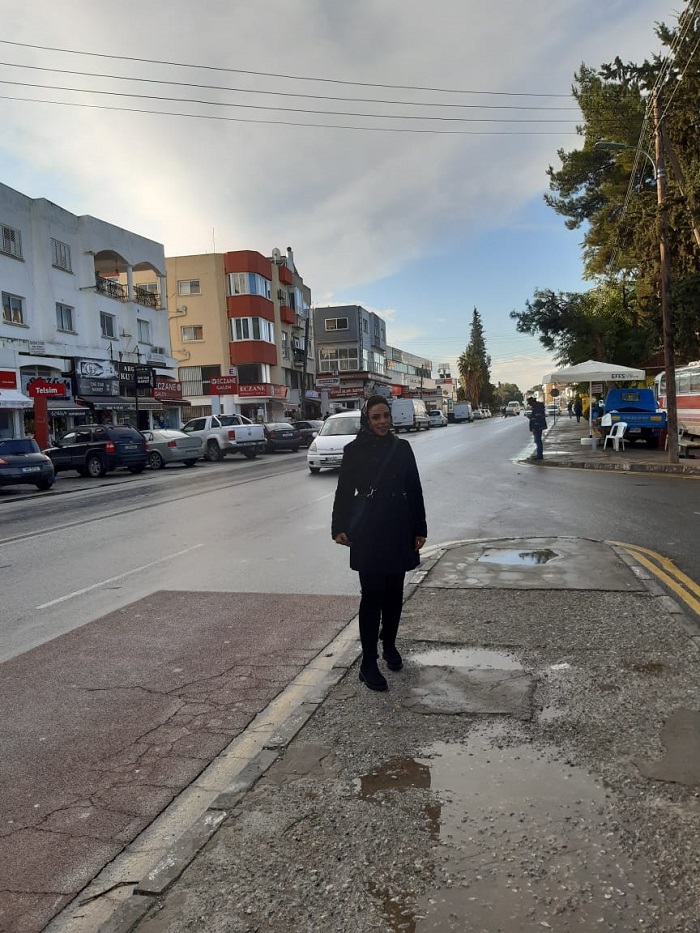 |
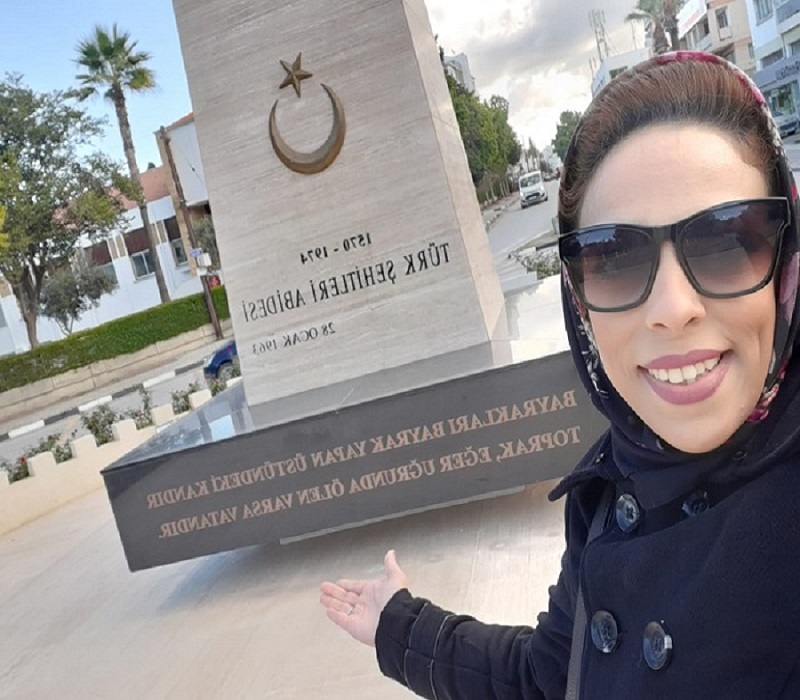 |
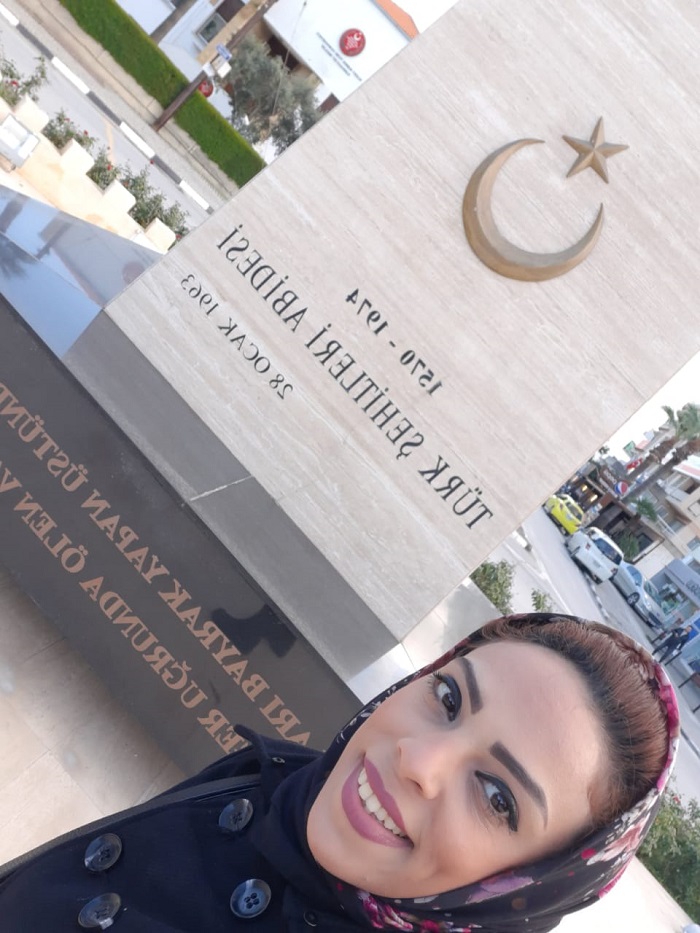 |
PD events 2022
Date: 29/1/2022
Venue: Pharos University
Title: Professional Development Day
Trainers: ELC staff members
Dalia Ashraf and Asmaa Yousry
Dalia is a teacher and CELTA tutor. She is the Senior Academic Coordinator at Pharos University in Alexandria (PUA). Dalia is also an active member of the Professional Development Unit at PUA.
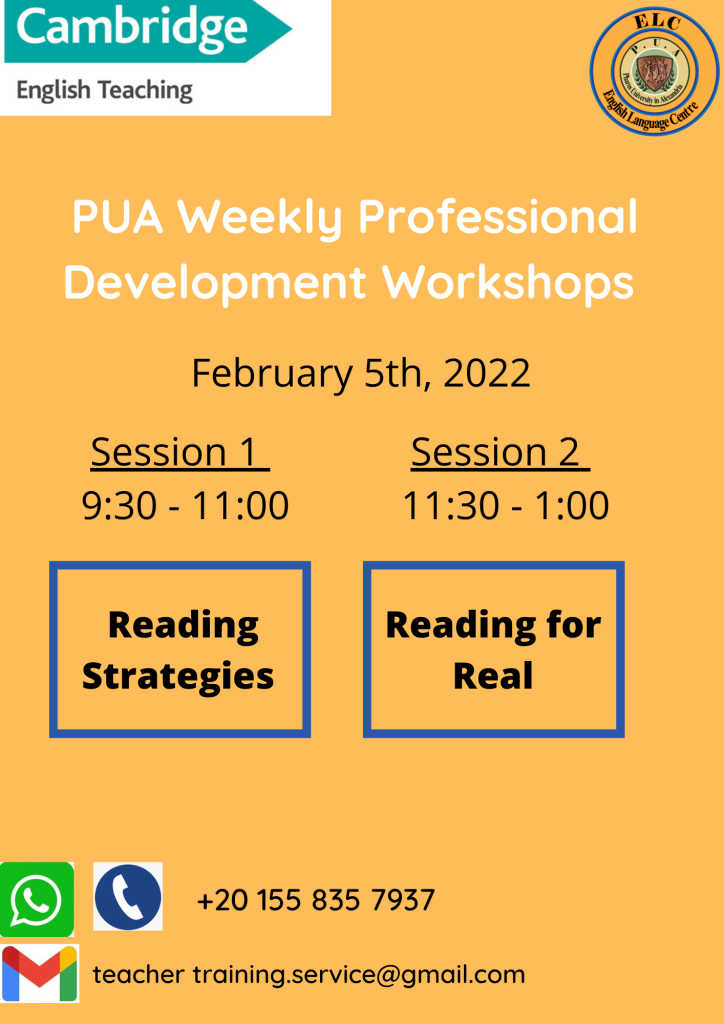
Teaching Reading
During the session, we went through the difference between reading sub-skills and when we use each sub-skill when reading in real-life situations. Also, the teachers learnt how to stage a reading lesson and what to do in a session after reading.
Teaching vocabulary
During the session the teachers were introduced to different ways to teach vocabulary with a focus on teaching it from a context. Also, the teachers learnt how to stage a vocabulary session and what to do in a session after presenting the new vocabulary items to help students practice the presented items.
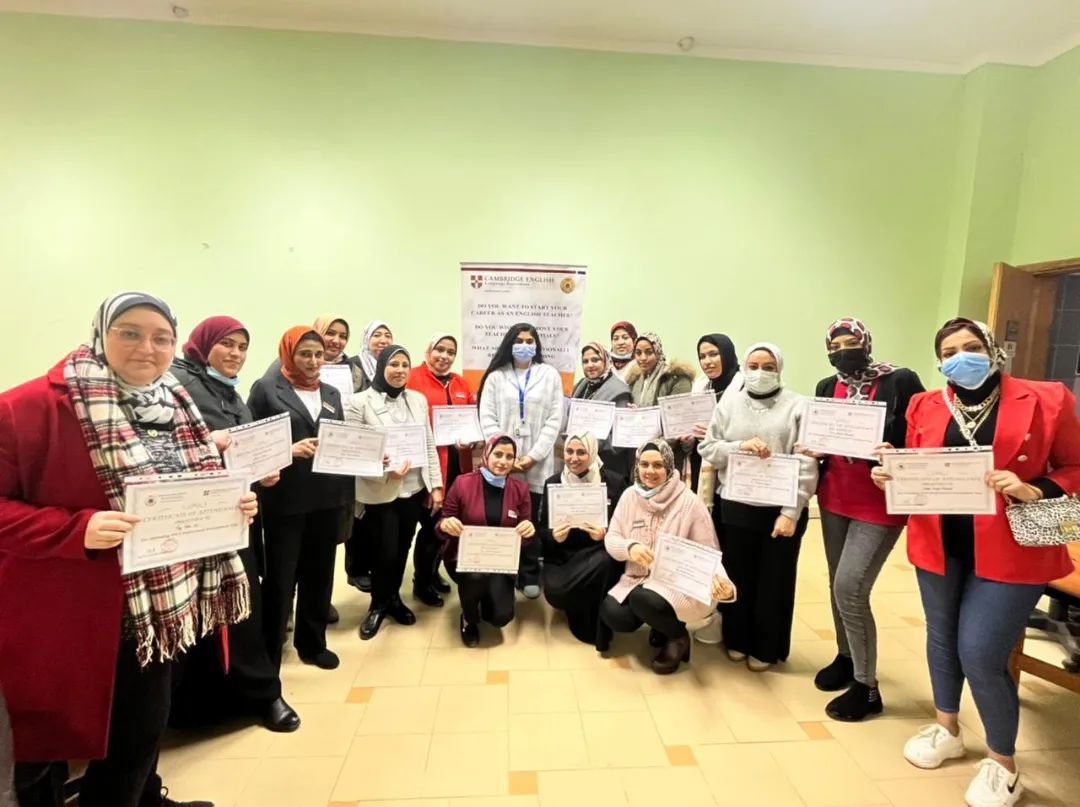 |
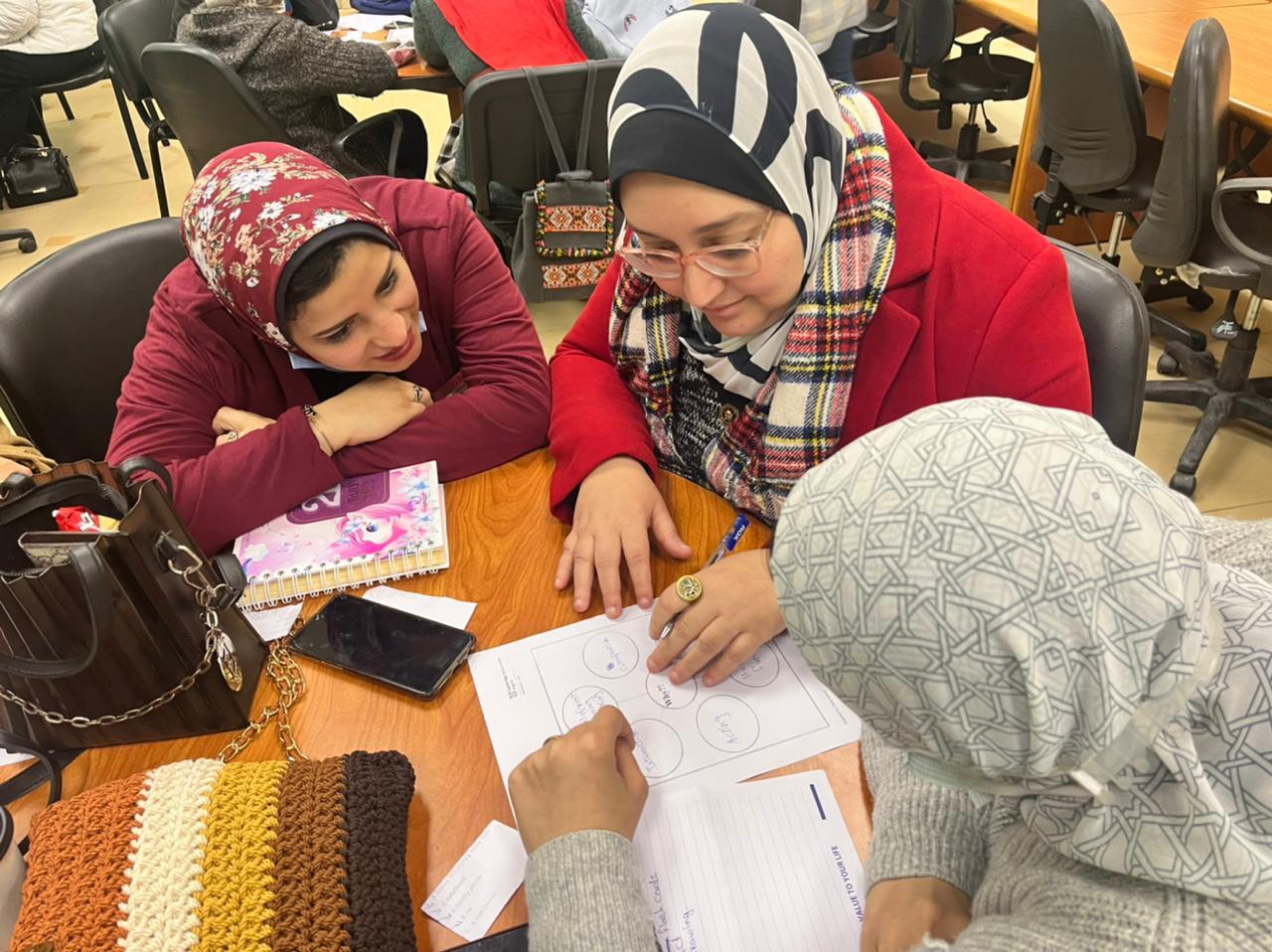 |
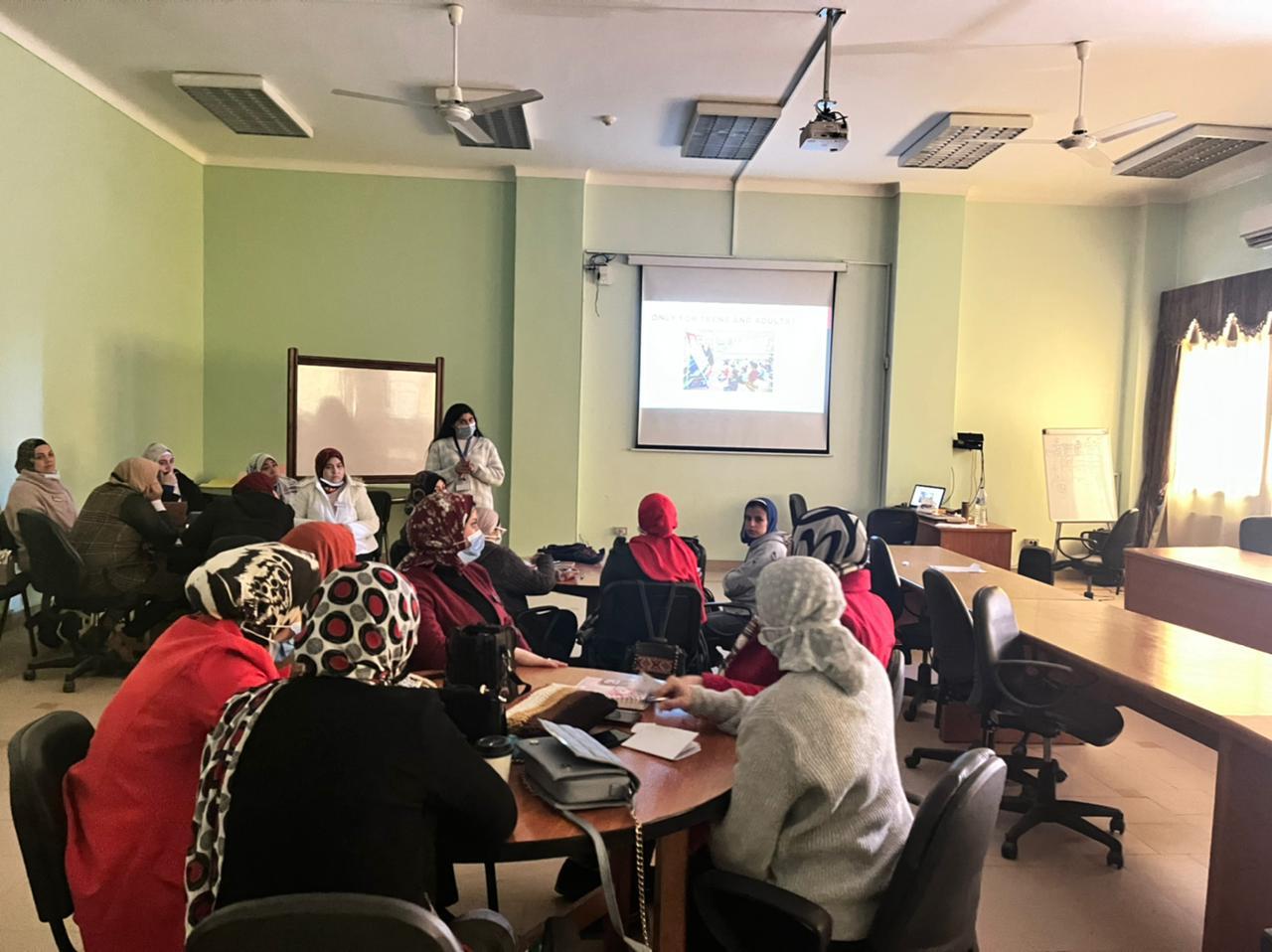 |
PD events 2019
Date: December,14th, 2019
Time: 9 a.m. to 2 p.m.
Venue: PUA English Language Centre
Attendees: 60 language teachers
Trainers: ELC staff members
Workshop Description:
Session 1 : Using Critical Thinking in ESL Classes
Session 2 : Integrating Running Dictation in your Teaching
Session 3 : Teaching Reading lessons
Session 4 : Using Drawing in Grammar Lessons
For more information about presenters and their workshops Click here
For more pics click here

ELC Professional Development Workshops 2022
Magda El-Awady
Magda presented to the ELC staff on
This session mainly focuses on clarifying the difference between rapport and discipline. It also helps teachers to create an effective classroom management plan and be able to understand the needs of their students in order to manage their behavior or prevent behavior problems.
Asmaa Yousry
Asmaa presented to the ELC staff on Brainstorming
During the session, the teachers gave an opinion about their beliefs about brainstorming, and the difficulties they face when they ask their students to generate ideas. Then, different brainstorming techniques were presented, and the teachers discussed which techniques to use depending on the type of writing the students are doing.
Mahinour Ragheb
Mahinour presented to the ELC staff on speaking activities
The session deals with three main problems that ELC teachers face while conducting speaking activities; lack of motivation, lack of vocabulary, lack of ideas. In the session, I will suggest some solutions for these three problems. At the end of the session, teachers will be presented with some examples of effective speaking activities.
Marina Samir
Marina presented to the ELC staff on ESL writing approaches
Throughout the past years, an increasing interest in ESL studies was shown. Many handbooks and research were published, focusing generally on ESL education and specifically on sub-areas related to the field. One of these sub-areas that caught the attention of many scholars is ESL writing. Writing has always been a challenge for both teachers and students. That encouraged me to dig deeper into the topic and share my findings with the ELT community at the NileTESOL annual conference 2022 that took place in January. The presentation focused mainly on two approaches to writing, the product and the process approaches, highlighting the difference between them, their advantages and disadvantages, and their usefulness according to the teaching context. Around 70 people attended the session and they were interacting at every stage of the presentation. Interaction took place through Zoom chat box and other interactive online tools. The presentation ended with a final fruitful discussion about both approaches. The discussion was mainly concerned with the interaction patterns and inclusiveness of both approaches. The presentation and the discussions aroused many questions, most of which were related to the application of the two approaches in different contexts.
Sara Magdi
Sara presented to the ELC staff on
The workshop starts with a question “Do you think all of the students that you teach are the same? / How are they different?”. Teachers, then, get introduced to the three types of students. After that, teachers try to give a definition of each type of student along with examples. Then, the presenter elicits the challenges of teaching a mixed abilities class. Also, teachers are introduced to differentiated learning. Moreover, the teachers start the practical stage which is tailoring an activity to match the level of a lower ability student. After that, the teachers are introduced to “Adapting the process of teaching”. They’re asked to answer 3 questions while watching a video about freer activities. After that, the teachers are divided into groups to answer a question “How can we extend freer activities according to our students’ level?” Afterwards, the teachers are introduced to another practical stage which is “tailoring a lesson plan according to your students’ level”
ELC Professional Development Workshops 2017
Pharos University and AUC Testing and Assessment Workshop, 2017
PUA English Language Centre Professional Development Unit was pleased to cooperate with the American University in organizing a one-day workshop entitled “Testing & Assessment”.
This workshop was held on 8th April 2017, from 9 – 3, during which 3 workshops had been given. Two of the ELC teachers had set up the first workshop entitled “Alternative Assessment”. The second one was held by Dr. Ramy Shabara with the title ” Task Based Assessment”. The final workshop was run by Ms. Hanaa Soudan entitled “Integrating Critical Thinking in ELT”.
The training was attended by approximately 280 English teachers, supervisors and a large number of students from the Faculty of Education – Damanhur University.
By the end of the workshop, ELC’s Professional Development Unit carried out a survey to know the attendees feedback. The attendees filled the survey and showed their interest to attend more workshops organized by ELC’s Professional Development Unit.
- For more information, please contact us: 03 3877347 / 342 Or visit our website:https://www.pua.edu.eg/continuing-education/elc/professional-development/
For more photos click here
__________________________________________________________________________________________________
Teacher Training for teachers of English from governmental schools, 2017
ELC’s Professional Development Unit- Pharos University was pleased to set up one-day teacher development training especially designed for teachers of English teachers, governmental supervisors of English in Alexandria. The training focused on the new methodologies in Teaching English. The training was attended by 85 English teachers, coordinators, school supervisors and heads of departments from different schools in Alexandria.
At the beginning of the training, Mr. Nasef Maher gave a talk supporting Pharos University’s efforts to improve the English teachers’ professionalism in Alexandria.
The training included 4 workshops entitled: “Tenses 3D View”, “Helping Students Become Better Writers”, “Using Short Films and Documentaries to Boost the Students’ Speaking Skills” and “How to Plan your Career Pathway as a Teacher of English?”.
The trainees filled a survey suggesting topics for next training sessions. Most suggestions were related to methods of teaching speaking and writing, as well as how to answer exam questions.
It’s worth mentioning that this training session reflects PDU’s beliefs, as the Unit is looking forward to set more training sessions and workshops.
For more information, please contact us: 03 3877347 / 342
Or visit our website: https://www.pua.edu.eg/continuing-education/elc/professional-development/
For more photos click here
ELC Professional Development Workshops 2016
- Teacher Training Course
- CEFR and Bloom’s Taxonomy Workshop
- Grading Writing Workshop
- Item Editing Workshop Brief
- Grading Speaking
For more photos Click here and Click here
Adrian Underhill Pronunciation Course 2018
Date: June 3rd to June 7th, 2018
Venue: PUA English Language Centre
Title: Getting pronunciation out of the head and into the body
Trainer: Adrian Underhill
Adrian is
Programme description:
Every lesson is already a pronunciation class, even if you do nothing about it. How can we turn this fact to advantage, enjoyably and successfully? How can we fully integrate pronunciation into our work on grammar, vocabulary and connected speaking?
How can we make pronunciation part of the glue that enables learners to fix and retain language, to reach easy intelligibility in their speaking and listening, to feel confident in themselves and to enjoy their learning?
This programme will develop insightful and practical answers to these questions, and enhance participants’ skill and confidence in their own pronunciation, and in bringing pronunciation learning to life.
Hands-on practical work beginning to end
This is a hands-on training programme of “doing pronunciation” involving working on sounds, words and connected speech for yourself and in your teaching.
You will develop your understanding and insight intp pronunciation and how it works in your muscles, breath and voice, learn and try out new teaching and learning techniques, receive practical guidance and tips, do micro teaching and relate this to your own teaching style.
You will receive a copy of the pronunciation chart for your classroom.
To know more about Adrian Underhill, visit his website: http://www.adrianunderhill.com
and watch one of his videos:https://www.youtube.com/watch?v=1kAPHyHd7Lo
For further queries, call +203 3877 342/347 or
We welcome participants from outside Egypt. Click here for information on Alexandria. Click https://www.tgphotels.com/ for accommodation options
_______________________________________________________________________________________________
Thom Kiddle Listening and Reading Workshops, 2018
Date: 6- 8 February, 2018
Venue: PUA English Language Centre
Title: Listening and Reading
Trainer: Thom Kiddle
Thom Kiddle has worked at NILE since 2011, after moving back to the UK from Chile where he was head of academic research and educational technology at the Chilean-British University. He has previously worked in Portugal, the UK, Australia and Thailand in language teaching, teacher training and language assessment.
He has a Master’s degree in Language Testing from Lancaster University and the Cambridge Delta, and his role at NILE involves strategic and organisational management, and training and consultancy in a range of areas including testing and assessment, learning technologies, materials development and language teaching methodology. Thom is also Chair of the Eaquals Board of Trustees; treasurer and a founding director of AQUEDUTO – the Association for Quality Education and Training Online; and webmaster for the Testing, Evaluation and Assessment Special Interest Group of IATEFL. He has published in Applied Linguistics, Language Assessment Quarterly, System, and in 2019, two chapters in Routledge Handbooks of Language Teacher Education. Thom is also a plenary speaker at IATEFL 2021.
Workshop description:
Workshop 1: Reading for Skills and Language development
Workshop 2: Listening for Listening Skills Development
Workshop 3: Listening and Reading for Developing Speaking Skills
The three-day workshop started by focusing on a preconception of the role of grammar in language teaching. Thom adopted a revolutionized approach to teaching grammar through developing teacher language awareness. The session mainly had a holistic grammar perspective; investigating how teachers can look beyond the way grammar is presented in course books in order to make it useful for learners in real life. The second day explored strategies and activities for developing reading skills discussing the benefits of teaching extensive and intensive reading skills by using international exam papers. Participants were encouraged, by the end of the day, to look beyond the question types to identify the measured skills and testing them, and focus instead on choosing student-enticing texts. Thom included digital tools that can inform teachers how to extend students vocabulary range and the use of structures. Finally, the last day focused on listening skills using Field’s 2012 cognitive framework of listening to identify different aspects of listening skills. Thom used a range of web-based sources for activities to help teachers engage students so that they can gain real life listening practice skills.
For more photos Click here
